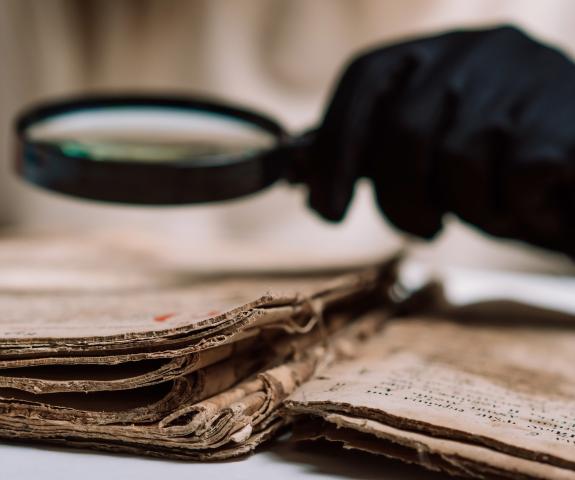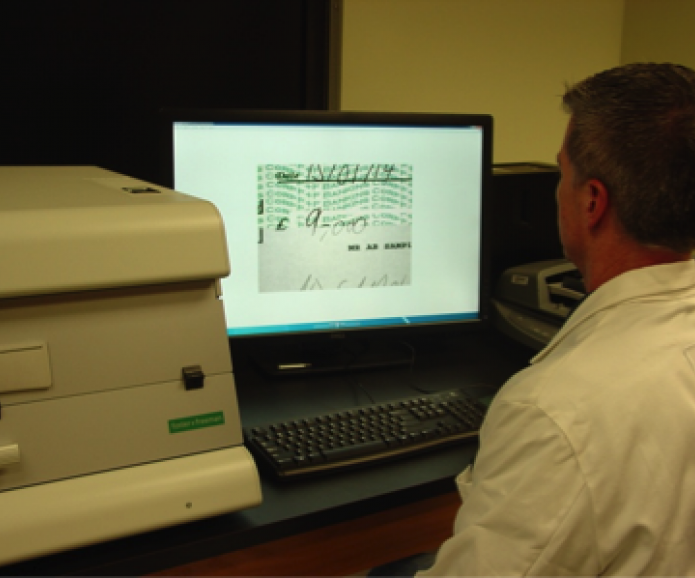
Careers in Questioned Documents
Questioned document examination, also referred to as forensic document examination, is the branch of forensic science best known for the determination of authorship of signatures and handwriting but, in fact, involves much more comprehensive analyses of writing instruments, writing mediums, and office machine products.
Scope of Work
Subject matters analyzed by document examiners include authorship of signatures, authorship of handwriting and hand printing, examination of documents for presence of alterations, decipherment of obliterated or erased entries, restoration of burned or liquid soaked documents, classification and identification of typewriters and computer printers, classification and identification of other office products such as staplers or check writers, page substitution, and the presence of indented writings
A document examiner will accomplish the analyses of the above-referenced forms of examination requests by utilizing state-of-the-art equipment in conjunction with standard methodologies. Most document examiners limit their examinations to non-destructive methodologies. In instances in which destructive tests for purposes of ink analysis or paper analysis may yield beneficial results, document examiners will refer that specific testing to an appropriate ink or paper chemist for destructive analysis.

Education and Training
Published standards for training, in line with common practices used in the profession for many decades, require that forensic document examiners should have: (1) corrected or natural vision of 20/20; (2) no evidence of color or form blindness; (3) a baccalaureate degree or higher in forensic science, sciences, or related subjects; and, (4) successful completion of a minimum 24-month structured training program under the direct and constant supervision of a qualified primary training officer. Appropriate training can be obtained from government laboratories or qualified document examiners in private practice, such as those certified by the American Board of Forensic Document Examiners or members of organizations such as the Questioned Documents Section of AAFS. Although available publicly, correspondence courses are not a substitution for a direct two-year training period.
Career Opportunities
Forensic document examiners are employed in both the public and the private sector. Private examiners can be found in many major cities in the United States. Large police agencies, along with most state and federal law enforcement agencies, often employ document examiners in their crime laboratories. Lists of qualified document examiners are provided through membership lists of the certification organization the American Board of Forensic Document Examiners (www.abfde.org) and national professional organizations, such as the Questioned Document Section of the American Academy of Forensic Sciences, and the American Society of Questioned Document Examiners (www.asqde.org).
Disciplines of Forensic Science
The AAFS is composed of more than 6,000 scientists organized into 12 sections representing the different areas of interest, activity, education, and expertise of individual members.
Begin Your Journey
How can you get closer to the forensic science community, and do your part in advancing the industry?